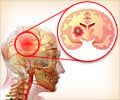What is Brain?
The brain is a complex organ that controls all the body functions. It contains 60% of fat and the remaining 40% is a combination of water, protein, carbohydrate, and salts. Brain and spinal cord together makes the central nervous system (CNS).
There are two regions in the CNS called gray and white matter. Gray matter is the outer section of brain and it is darker whereas white matter is the inner section of the brain and it is lighter (1✔ ✔Trusted Source
Brain Anatomy and How the Brain Works
Go to source).
The brain is a monstrous, beautiful mess. Its billions of nerve cells — called neurons — lie in a tangled web that displays cognitive powers far exceeding any of the silicon machines we have built to mimic it. — William F. Allman in Apprentices of Wonder. Inside the Neural Network Revolution, 1989.
How Does the Brain Work?
The brain sends and receives chemical and electrical signals throughout the body. Each process has its own unique signals, and the brain is able to interpret and understand each of these signals.
Some messages are stored within the brain, while others are transmitted to the spinal cord and distributed across the body's extensive network of nerves. To accomplish this, the central nervous system (CNS) relies on billions of neurons, also known as nerve cells (1✔ ✔Trusted Source
Brain Anatomy and How the Brain Works
Go to source).
Health Facts about the Brain
The brain is the most amazing and complex organ in this universe, and its research continues to throw up new facts that surprise us. The brain is capable of being modified or improved even as we age. It is never used to its full extent.
Statistics about the Brain
- The human brain has about 100 billion neurons. From the age of 35 years about 7,000 neurons are lost daily (2✔ ✔Trusted Source
The Amazing Brain
Go to source). - During early pregnancy the neurons in the fetus can multiply at a rate of 250,000 neurons/minute (3✔ ✔Trusted Source
The Development and Shaping of the Brain
Go to source). - Brain is composed of 75% to 80% water, which means that dehydration can affect the proper functioning of the brain (4✔ ✔Trusted Source
The Effects of Hydration Status on Cognitive Performances among Young Adults in Hebei, China: A Randomized Controlled Trial (RCT)
Go to source). - Brain consists of 60% white matter and 40% grey matter. White is the supporting matter and grey is the thinking matter of the brain.
Assume that your brain is a computer; the grey matter would be the computer itself, and the white matter would be its cables (5✔ ✔Trusted Source
Grey Matter
Go to source).
- Adult brain weighs about 3 pounds or 1,300 to 1,400 grams. This is about 2% of the body weight if you weigh 150 pounds or 70 kg. Sperm whale’s brain weighs 7,800 grams (6✔ ✔Trusted Source
Brain Facts and Figures
Go to source). - Although the brain accounts for only 2% of our body weight, it consumes 20% of the oxygen that we breathe and roughly 20% of our daily calories (7✔ ✔Trusted Source
Study Reveals Brain’s Finely Tuned System of Energy Supply
Go to source). - Roughly, 15% to 20% of all blood pumped out of the heart goes directly to the brain (8✔ ✔Trusted Source
Distribution of cardiac output to the brain across the adult lifespan
Go to source).
How Does the Brain Handle Feelings?
- All the thinking in the brain is about electricity and chemicals. The brain is more active and thinks more at night than during the day.
- The brain itself is incapable of feeling pain. It is possible to operate on the brain once the skull is opened even when the patient is still awake.
- You can’t feel your own tickle either. The brain is smart enough to neutralize the sensation. The cerebellum sends a signal to rest of the brain of your intentions and as a result the sensation is ignored.
 MEDINDIA
MEDINDIA























Good information.